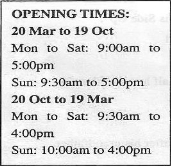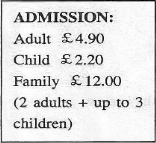题目内容
Four brothers left home for college, and they became successful doctors and lawyers.
Some years later, they got together again. While having dinner, they for a long time. They discussed the they had given their elderly mother who lived far away in another city. The first said, “I had a house built for Mama.” The second said, “I had my Mercedes-Benz dealer(奔驰经销商)send a to her.” The third said, “I built a beautiful for Mama.” The fourth said, “You know Mama loved reading poems and you know she can’t read any more because she can’t very well. I met a businessman who had a parrot that can recite many . It took him 12 years to it to speak and he earns his living by renting it out. I had to pay him $100,000 a year for twenty years, it is worth it.” On hearing that, the other brothers were by his good thought.
After the holidays their mother her thank-you notes, which read, “Milton, the house you built is so huge. I only live in one room, but I have to clean the whole house. It’s a (an) job. Thanks anyway.”
“Marvin, I am too old to . I stay home and have others work for me, so I’ll use the car. The was good, although not realistic. Thanks.”
“Michael, you gave me an expensive building for many people to plays or watch movies in it, but all my friends are dead. I’ve almost my hearing and I’m nearly blind. I won’t use it. Thank you all the same.”
“Dearest Melvin, you are the son to have the good sense to give a little thought to your gift. The chicken tasted so . I liked it very much. Thank you.”
1.A. foughtB. talkedC. studiedD. slept
2.A. giftsB. chancesC. wishesD. challenges
3.A. warmB. bigC. safeD. lonely
4.A. bookB. bikeC. carD. bag
5.A. stationB. museumC. libraryD. theater
6.A. whatB. howC. whyD. when
7.A. listenB. feelC. seeD. walk
8.A. storiesB. wordsC. poemsD. lyrics
9.A. protectB. beatC. raiseD. train
10.A. butB. soC. unlessD. although
11.A. shockedB. impressedC. frightenedD. embarrassed
12.A. sent outB. put upC. took outD. picked up
13.A.enjoyableB. delightfulC. tiringD. amusing
14.A. learnB. workC. exerciseD. drive
15.A. neverB. oftenC. regularlyD. sometimes
16.A. futureB. hobbyC. ideaD. program
17.A. createB. enjoyC. bringD. record
18.A. lostB. admiredC. remainedD. discovered
19.A. sameB. lastC. nextD. only
20.A. strangeB. unpleasantC. terribleD. delicious
1.B
2.A
3.B
4.C
5.D
6.B
7.C
8.C
9.D
10.A
11.B
12.A
13.C
14.D
15.A
16.C
17.B
18.A
19.D
20.D
【解析】
试题分析:本文是一个幽默故事。讲述的的是儿子给母亲送生日礼物,有房子车子等。但母亲还是最喜欢小儿子送的鹦鹉。引文她把鹦鹉当鸡肉吃了,觉得味道不错。
1.考查动词辨析A.fought发现;B.Talked交谈讨论;C.studuied学习;D.slept睡觉。根据下文可知吃完饭后讨论,故选B。
2.考查名词辨析。A.gifts礼物;B.chances机会;C.wishes愿望;Dchallenge挑战。hey discussed the they had given their elderly mother who lived far away in another city 可知是讨论给老母亲的礼物,故选A。
3.考查形容词辨析。A.warm 温暖;B.big 大;C.safe 安全D.lonely孤独;I had a house built for Mama.”建造大房子给母亲,故选B。
4.考查名词辨析。A.book书籍;B.bike 自行车;C.car 汽车;D.bag包。 根据 had my Mercedes-Benz dealer(奔驰经销商)send a to her.奔驰是车的品牌,故选C。
5.考查名词辨析。A.station 车站;B.museum 博物馆;C.library 图书馆;D.theater剧院。根据文章Michael, you gave me an expensive building for many people to plays or watch movies in it可知是一个大剧院,故选D。
6.考查特殊疑问词辨析,A.What 什么;B.How 怎么了;C.why 为什么;D.when什么时候。because she can’t very well由because可选出答案,故选B。
7.考查动词辨析。A.listen听;B.feel感觉;C.read看视力;D.walk走。she can’t read any more不能看书因为视力不好,故选C。
8.考查名词辨析。A.stories故事;B.words 单词;C.poems诗歌;D.lyric诗词I met a businessman who had a parrot that can recite many . 遇见一个商人的鹦鹉可以背诵诗歌。故选C。
9.考查动词辨析。A.protect保护;B.beat 打败;C.raise提高;D.train 训练。It took him 12 years to it to speak and he earns his living by renting it out. 商人花费12年训练鹦鹉背诗歌,故选D。
10.考查连词辨析。A.but 但是;B.so 因此;C.unless除非D.though.尽管I had to pay him $100,000 a year for twenty years, it is worth it花了不少钱但是是值得的,转折关系。故选A.
11.考查动词辨析。A.shocked使震惊;B.impressed使印象深刻;C.frightened使惊吓;Dembarrassed使害怕。the other brothers were by his good thought. 兄弟对这个好想法印象很深,故选B。
12.考查短语辨析。A Send out 送去; B put up 张贴; C take out 拿出 ; D pick up 捡起 用车接送。After the holidays their mother her thank-you notes送去感谢信,故选A。
13.考查形容词辨析。A.enjoyable享受的;B. delightful明亮的Ctiring 努力地;Damusing不可思议的 前文说到要打扫房子,所以说明这个工作很辛苦,故选C。
14.考查动词辨析。A.learn学习;B.work 工作;C.exercise锻炼;D.drive驾驶。 联系上下文,too……too……表示太……以至于不能…… 后文说我要在家有其他事情做,故选B。
15.考查频率副词辨析。A.never从不;B.often经常C.regularly有规律地D.sometimes有时,上文说我太老了不能去工作,在家也有其他事情做,所以从不需要开车,故选A。
16.考查名词辨析。A.future 未来B.hobby 兴趣爱好;C.idea想法Dprogram.规划,程序The was good, although not realistic.realistic则暗示是想法,故选C。
17.考查动词辨析。Acreate创造B.enjoy 享受C.bring 带来D.record 记录an expensive building for many people to plays or watch movies in it,词组搭配,enjoy plays,享受玩耍,其余选项的搭配均不符合上下文,故选B。
18.考查动词辨析。A.lost失去;B.admire钦佩C.remind 保存;D.discovered发现。 my hearing此处是一个固定搭配,失聪。
19.考查名词辨析。A.same 一样B.last 最后C.next 下一个D.only只有 。 you are the son to have the good sense to give a little thought to your gift.此处the则体现唯一性,故选D。
20.形容词辨析。A.strange 奇怪的;B.unpleasant 不舒服的;C.terrible 糟糕的;D.delicious美味的。形容chicken则用delicious,故选D。
考点:生活类短文阅读

 轻松暑假总复习系列答案
轻松暑假总复习系列答案
